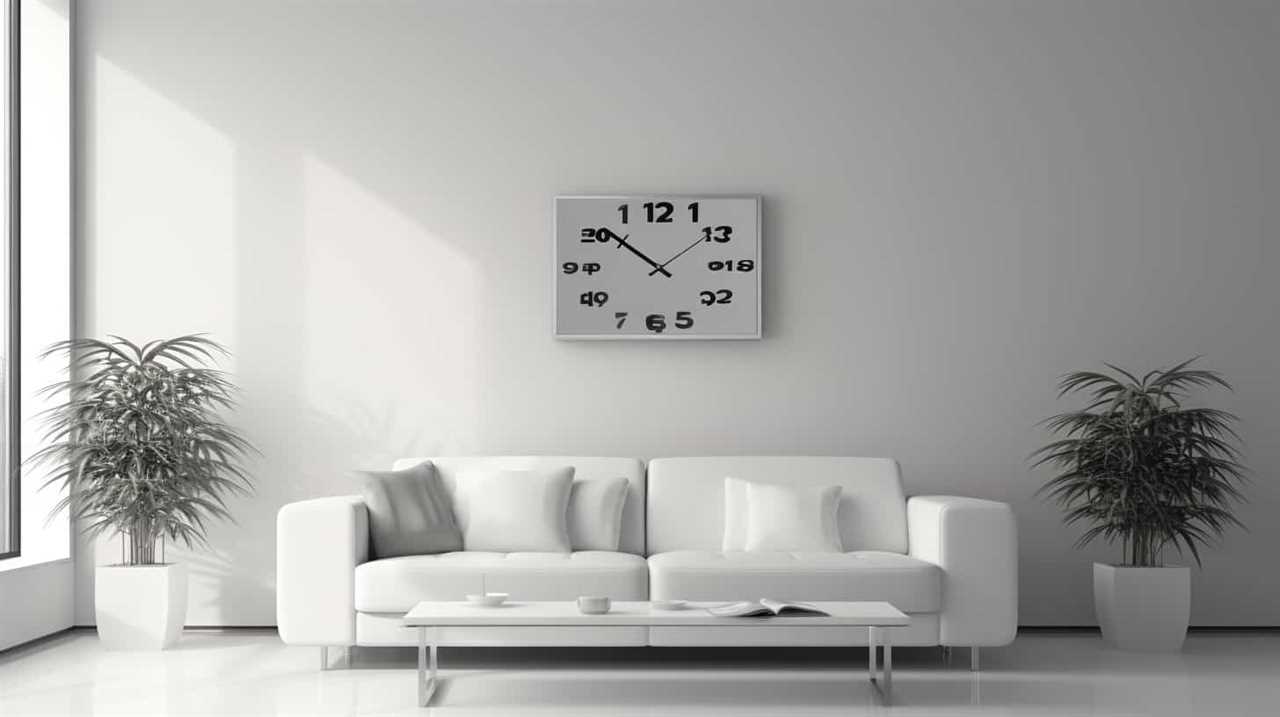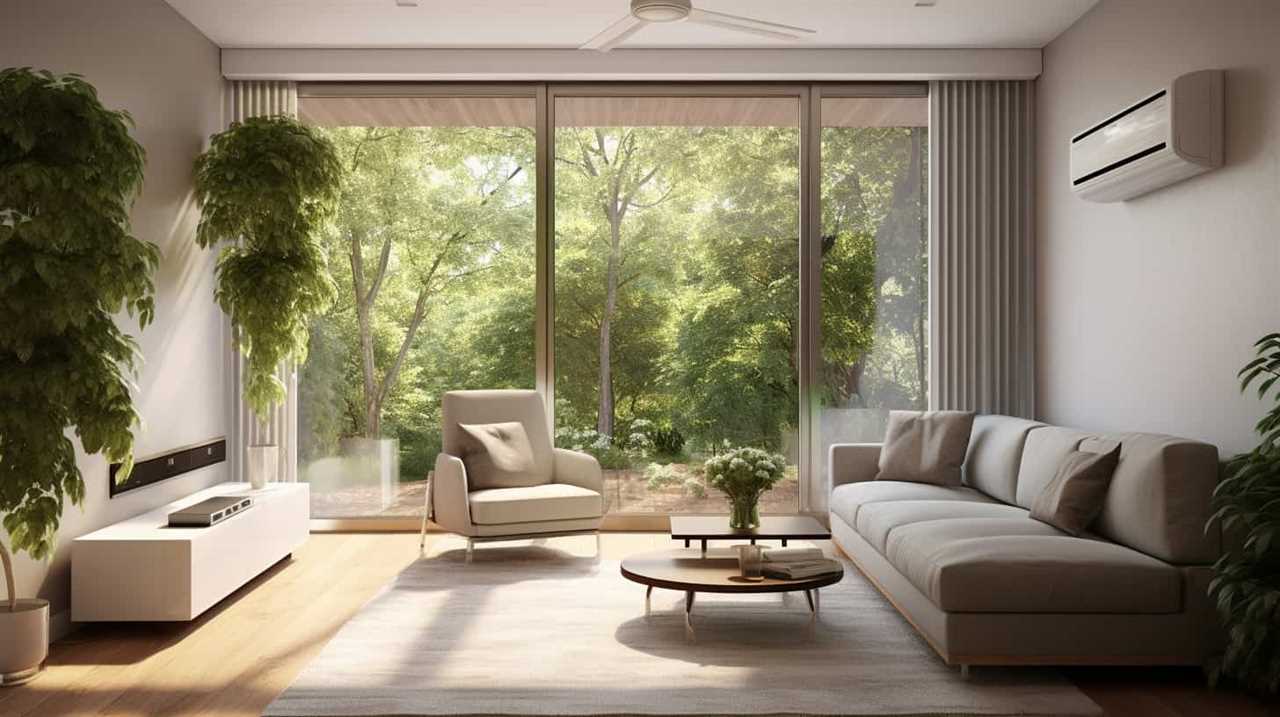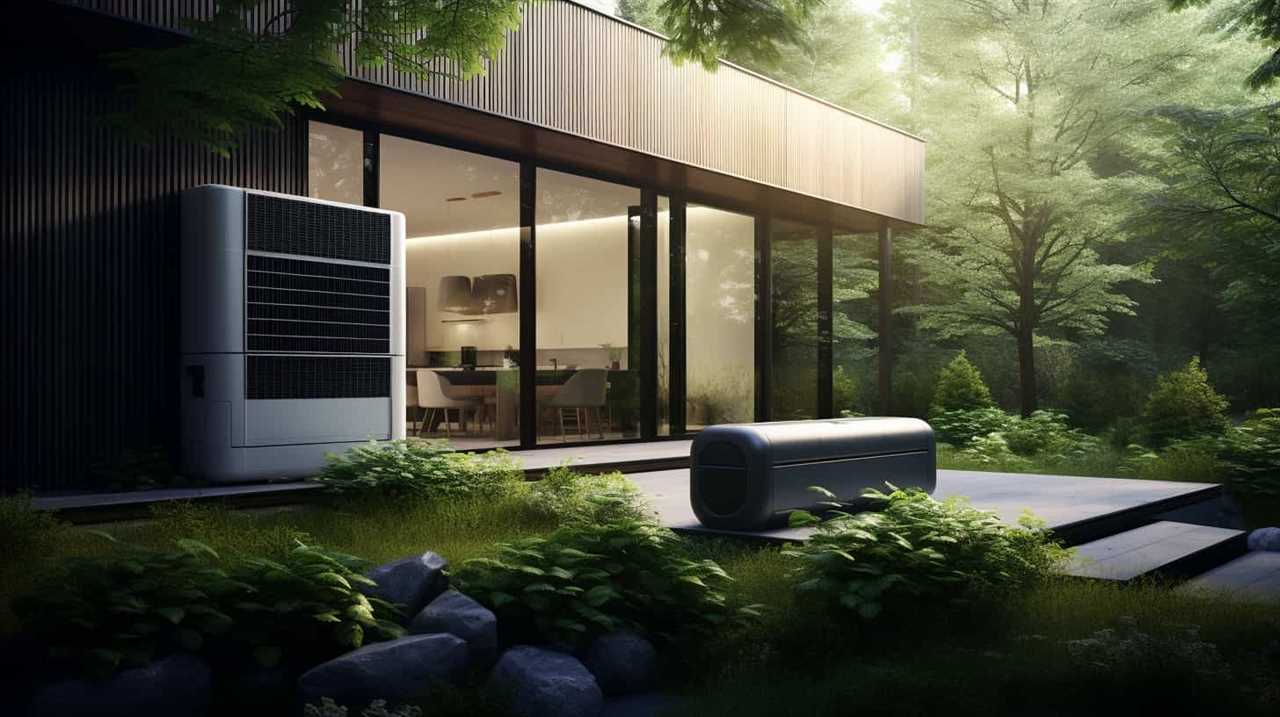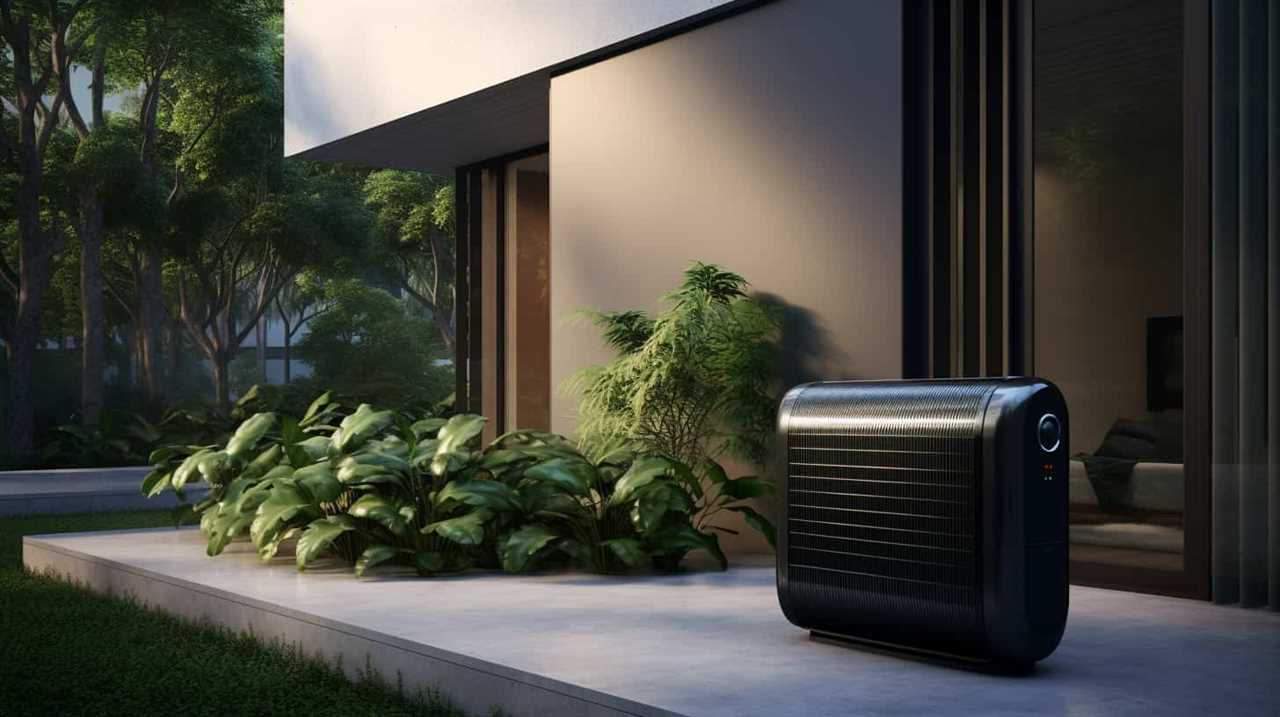We have discovered the solution to reducing electricity expenses! Come with us as we highlight the efficiency of heat pumps.
In this article, we’ll explore the importance of maximizing heat pump efficiency and its potential for energy savings. With our tips, you’ll learn how to minimize electricity usage while maximizing the performance of your heat pump.
Discover the cost-effective strategies for upgrading your heat pump and enjoy long-term energy savings. It’s time to take control of your electricity costs and embrace the freedom of efficient heating and cooling.
Key Takeaways
- Heat pumps are energy-efficient heating options that can significantly lower electricity bills.
- Regular maintenance, such as cleaning or replacing filters and checking refrigerant levels, is crucial for optimal performance and savings.
- Heat pumps work by extracting heat from the air, ground, or water, making them more energy-efficient than traditional heating systems.
- Proper installation, maintenance, and utilization of energy-saving settings can maximize heat pump efficiency and minimize electricity usage.
The Importance of Heat Pump Efficiency in Reducing Electricity Costs
We should prioritize heat pump efficiency to reduce electricity costs. Heat pumps are energy efficient heating options that can significantly lower your electricity bills.

However, to ensure optimal performance and savings, regular heat pump maintenance is crucial. By properly maintaining your heat pump, you can ensure that it operates at its highest efficiency, maximizing energy savings. This includes cleaning or replacing filters, checking refrigerant levels, and inspecting the outdoor unit for any debris or obstructions.
Additionally, scheduling professional maintenance visits will help identify and address any potential issues before they become major problems. Understanding the energy-saving potential of heat pumps is essential for homeowners looking to cut electricity costs.
Understanding the Energy-Saving Potential of Heat Pumps
Heat pumps offer significant energy-saving potential, and homeowners can take advantage of this by understanding their efficiency. Here are three key factors to consider when evaluating the energy-saving potential of heat pumps:
-
Heat pump technology: Heat pumps work by extracting heat from the air, ground, or water and transferring it into your home. This process is more energy-efficient than traditional heating systems because it doesn’t rely on burning fossil fuels to generate heat.

-
Energy efficient heating: Heat pumps can provide both heating and cooling, making them a versatile solution for year-round comfort. By utilizing energy-efficient heating methods, heat pumps can help homeowners reduce their electricity costs while maintaining a comfortable indoor environment.
-
Proper installation and maintenance: To maximize energy savings, it’s crucial to ensure that your heat pump is installed correctly and regularly maintained. Proper installation and maintenance can optimize the efficiency of your heat pump, resulting in lower energy consumption and greater cost savings.
Tips for Maximizing Heat Pump Efficiency and Minimizing Electricity Usage
To maximize heat pump efficiency and minimize electricity usage, homeowners should implement several key strategies. One important aspect is regular heat pump maintenance. This includes cleaning or replacing air filters every one to three months to ensure proper airflow and efficiency. Additionally, scheduling annual professional maintenance checks can help identify and address any issues that may be affecting the heat pump’s performance.
Another way to optimize efficiency is by utilizing energy-saving settings. Most heat pumps offer programmable thermostats, allowing homeowners to set different temperature levels for different times of the day. By programming the heat pump to lower the temperature when no one is home or during sleeping hours, unnecessary energy consumption can be avoided.

The table below summarizes these strategies and their benefits:
| Strategy | Benefits |
|---|---|
| Regular maintenance | Ensures proper airflow and efficiency |
| Professional check-ups | Identifies and addresses any performance issues |
| Utilize energy-saving settings | Reduces energy consumption during periods of low demand |
Implementing these strategies can significantly improve heat pump efficiency and reduce electricity usage, resulting in lower energy bills and a more sustainable home.
Evaluating the Performance of Heat Pumps: Efficiency Ratings and Factors to Consider
When evaluating the performance of heat pumps, it’s important to consider efficiency ratings and factors such as the unit’s size, energy source, and climate conditions. These key factors can greatly impact the overall efficiency and energy consumption of a heat pump.
Here are three important aspects to consider when evaluating heat pump performance:

-
Efficiency standards: Look for heat pumps that meet or exceed industry efficiency standards, such as the Seasonal Energy Efficiency Ratio (SEER) and the Heating Seasonal Performance Factor (HSPF). Higher ratings indicate better energy efficiency and lower operating costs.
-
Unit size: Choosing the right-sized heat pump is crucial for optimal performance. A unit that’s too small may struggle to meet the heating or cooling demands, while an oversized unit may cycle on and off frequently, leading to energy wastage.
-
Climate conditions: Consider the climate in which the heat pump will be operating. Heat pumps are more efficient in moderate climates, while in extreme climates, additional heating or cooling sources may be required to supplement the heat pump’s performance.
Investing in Heat Pump Upgrades: Cost-Effective Strategies for Long-Term Energy Savings
How can we maximize our long-term energy savings by investing in cost-effective strategies for heat pump upgrades?

One of the most important strategies is to ensure a proper heat pump installation. Hiring a professional technician who specializes in heat pumps can ensure that the system is installed correctly, optimizing its efficiency and performance.
Additionally, investing in energy efficient heating is crucial. Upgrading to a high-efficiency heat pump can significantly reduce energy consumption and lower utility bills in the long run. Look for heat pumps with a high Seasonal Energy Efficiency Ratio (SEER) and Heating Seasonal Performance Factor (HSPF) ratings, as these indicate better efficiency.
Frequently Asked Questions
What Are Some Common Maintenance Tasks That Can Help Improve Heat Pump Efficiency?
Common maintenance tasks include cleaning or replacing air filters regularly, inspecting and cleaning the outdoor unit, and scheduling professional maintenance. Following these energy-saving tips can greatly improve heat pump efficiency and help cut electricity costs.
Are There Any Government Incentives or Rebates Available for Installing a Heat Pump?
Yes, there are government incentives available for installing a heat pump. These incentives can help offset the initial cost of installation and encourage energy savings in the long run.

How Long Does the Average Heat Pump Last Before Needing to Be Replaced?
Heat pump lifespan varies depending on usage and maintenance, but on average, they last around 15-20 years. Signs of heat pump failure include reduced heating/cooling performance, frequent breakdowns, and increased energy consumption.
Can a Heat Pump Be Used as the Sole Source of Heating and Cooling in a Home?
Yes, a heat pump can be used as the sole source of heating and cooling in a home. It offers advantages over traditional HVAC systems, such as lower installation costs and increased energy efficiency.
Are There Any Specific Considerations to Keep in Mind When Selecting a Heat Pump for a Commercial Building?
When selecting a heat pump for a commercial building, there are specific considerations to keep in mind. We should focus on energy efficient models and cost-effective options to minimize electricity costs.
Conclusion
In conclusion, maximizing heat pump efficiency is crucial in reducing electricity costs.

While some may argue that investing in heat pump upgrades is expensive, the long-term energy savings outweigh the initial cost.
By understanding the energy-saving potential of heat pumps and implementing strategies to maximize efficiency, homeowners can significantly minimize their electricity usage.
It’s a cost-effective solution that not only benefits the environment but also saves money in the long run.









